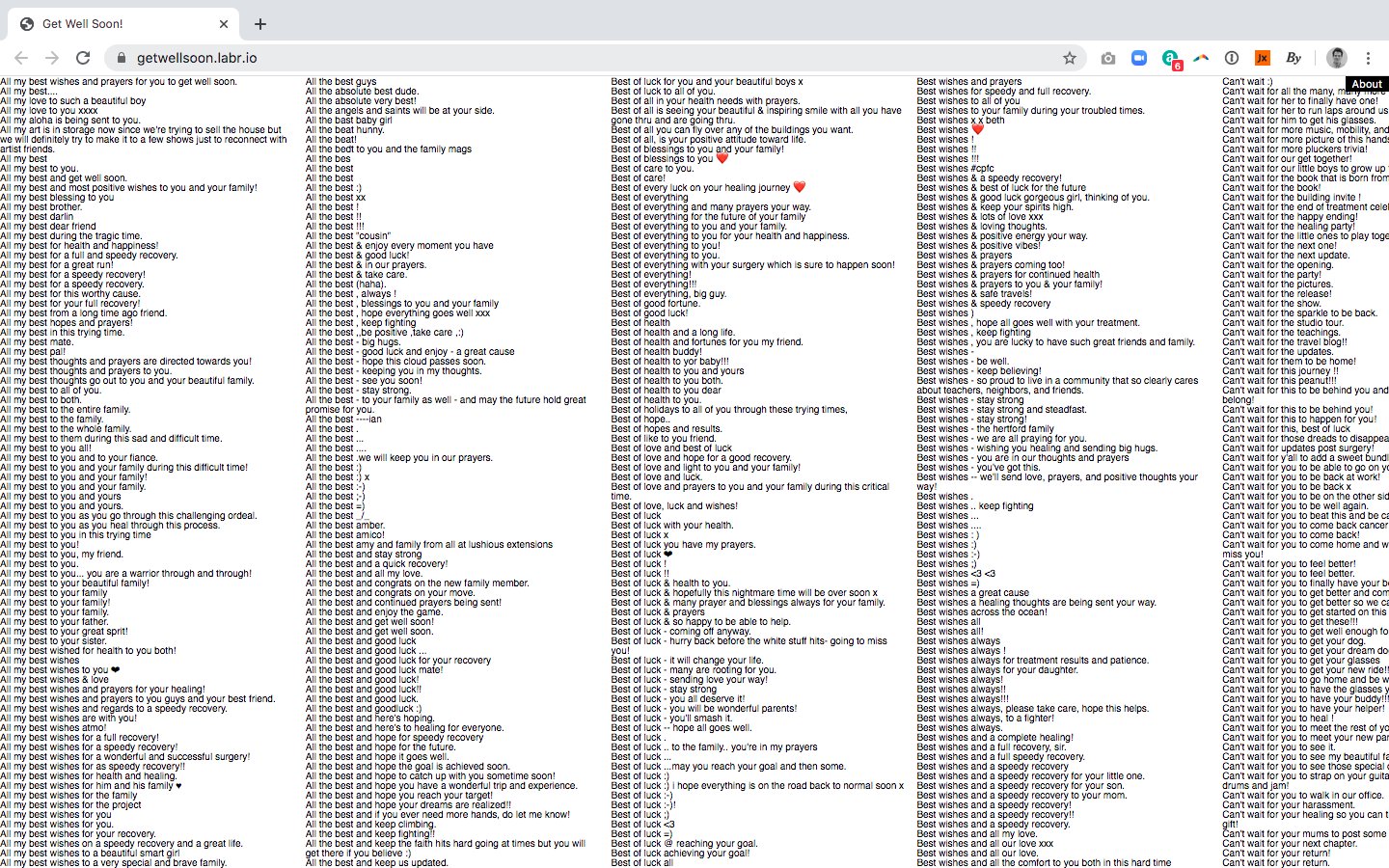 |
| 'WE = LINK: Ten Easy Pieces' is available at: http://we-link.chronusartcenter.org/ |
While brick-and-mortar spaces dwindle in numbers, there is certainly no shortage of frenzied action being taken by the art world to bring culture straight to the doorsteps, contact-free. The appetite for the arts is now being satiated digitally as cultural institutions go virtual, but with such unprecedented uncertainty and diminishing attention spans- the coronavirus pandemic coupled with the revolutionary fervor re-incited by George Floyd’s death- shows of solidarity through art take precedence over mind-numbing satiation. Culture is metamorphosing as it harnesses the language, aesthetics and existential anxiety of contemporary life- a reminder that despite the universality of virus, demographically localized oppressions persist as structural inequalities are not only sustained but inflamed. Traces of the much needed silver lining of solidarity linger in the Chronus Art Center’s most recent online exhibition, WE = LINK: Ten Easy Pieces, initiated as an open call to the international media art community. Employing network-native works, WE = LINK in its entirety is borne from the internet, existing solely within the quadrilateral frames of our devices. The ten networked art pieces, in their totality, serve as a response to “a general state of humanity that is under pressing peril of natural and social disruptions” (Ga, 2020), disruptions of severe systematic failures that are being exposed during the coronavirus outbreak.
As screen times soar, we are beckoned to come face-to-face with the internet’s sheer penetrative power like never before; long a ubiquitous given, these networks have felt so fundamental to the human condition they were forgettable- only up until our daily routines were disrupted, however. WE=LINK curator Zhang Ga elucidates this transformation, wherein practice precedes theory, in Heideggerian terms; what was once “Zuhandenheit” (readiness-to-hand), a matter-of-fact extension of the self, is now “Vorhandenheit” (presence-at-hand), a phenomenon eligible for theoretical consideration. And at the core of this theorization is an idea recurring in WE=LINK- connectivity. Network native art, in particular, possesses a kind of virtual viscerality that transcends passive viewing, necessarily so in its competition for attention with the constant stimulation of a text message, an Instagram notification or the urgent desire to check the daily COVID-19 stats. Coupled with the work it hosts, the show’s interface design and title limn both this connectivity and bombardment of stimuli. WE=LINK- a subtle play on WeChat, the popular Chinese social media platform- hosts a landing page featuring a circuitry of pale pink chain-links, overlaid with interactive dots which, hovered over, sporadically display artwork previews.
 |
| 'get well soon!' (2020) by tega brain & sam lavigne |
Commissioned by the Chronus Art Center, Tega Brain and Sam Lavigne’s Get Well Soon (2020) employs digital data as a simultaneous critique and show of solidarity. A squint reveals the fine sans serif print on a vast e-card to be the aggregation of some 200,000 well-wishes amassed from medical GoFundMe campaigns. Beneath all the good will of the repeated variations of “hang in there” and heart emojis is a nationwide illness brewing, one which will not be entirely remedied by mutual aid but ultimately by tangible structural change. More than anything, it is an archive that lays bare the festering wound that is a failing healthcare system which values profit and bipartisan debate over the lives of its citizenry. It is an archive that should not exist.
As if it wasn’t immensely pertinent at the time of the exhibition’s opening, Get Well Soon is a prescient warning in its paralleling of illness and insurrection. The e-card is accompanied by a politically charged essay by Johanna Hedva, likening the nowness and the immediacy of illness to that of revolution: “When we are desperate for change, as we are both in illness and insurrection, our language drains of complexity, becomes honed to its barest essentials” (Hedva, 2020). Swept up in the fervor of George Floyd protests, almost all of which originates from social media, we occupy a liminal space as “the now becomes a joyous defiance of fate” (Hedva, 2020). At some point though, as Hedva notes, the nowness of revolution becomes wedged in between “the past and the future”, a never-ending wait. And what Get Well Soon reminds us at a time of simultaneous mass illness and revolution, as Roxane Gay puts it plainly, is that “eventually, doctors will find a coronavirus vaccine, but black people will continue to wait, despite the futility of hope, for a cure for racism” (Gay, 2020). WE=LINK’s advocacy of the solidarity elicited by digital networks is certainly a sentiment that reverberates in the now. The ubiquity of these networks have undoubtedly enabled individuals to uphold one another in the face of governmental failures. But as the indignation piles on like volatile layers of sediment, one tragedy after another, WE = LINK inadvertently stresses that digital dialogue can no longer serve as an end goal. No matter its immediacy, the internet will not match the viscerality of taking to the streets. And while the silver lining glimmers of solidarity, it no longer entails a return to normalcy- rather, normal is the very thing we must be liberated of.
'WE = LINK: Ten Easy Pieces' is at Chronus Art Center, March 30 onwards.
'WE = LINK: Ten Easy Pieces' is at Chronus Art Center, March 30 onwards.
Works cited
Ga, Z. (2020). WE=LINK: | TEN EASY PIECES 十个小品. [online] we-link.chronusartcenter.org. Available at: http://we-link.chronusartcenter.org/ [Accessed 8 Jun. 2020].
Gay, R. (2020). Opinion | Remember, No One Is Coming to Save Us. The New York Times. [online] 30 May. Available at: https://www.nytimes.com/2020/05/30/opinion/sunday/trump-george-floyd-coronavirus.html [Accessed 8 Jun. 2020].
Hedva, J. (2020). A Text by Johanna Hedva. Available at: http://getwellsoon.labr.io/ [Accessed 7 Jun. 2020].

No comments:
Post a Comment